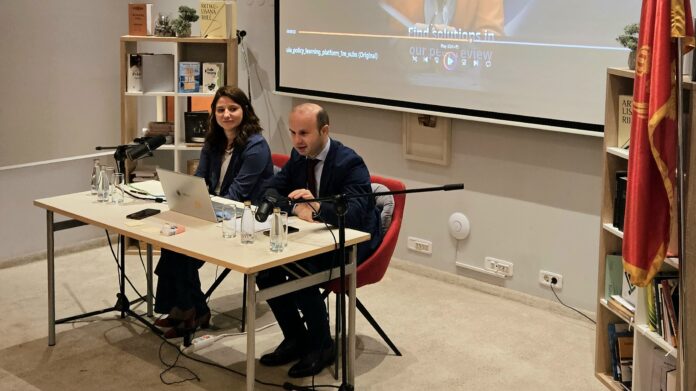“Through the Policy Learning Platform, one of the key components of the Interreg Europe cooperation programme, Montenegrin institutions and organizations gain access to a wealth of knowledge and expertise, have the opportunity to connect with policymakers facing similar challenges and enhance their professional capacities,” said Miloš Marković, Director General of the Directorate for European Territorial Cooperation in the Ministry of European Affairs, during an info session held in Podgorica.
Marković expressed satisfaction that four Montenegrin beneficiaries have already took part in this programme through the Restrictive Call. This call allowed partners from seven new countries to join ongoing projects from the First and Second Calls. He also expressed hope that this event would inspire potential beneficiaries to explore the platform’s possibilities and harness its potential for future projects within the Interreg Europe programme.
Interreg Europe Programme Director Ervin Siweris highlighted that the Platform aims to foster learning about policies related to regional development across the EU and contribute to overcoming common challenges faced by decision-makers at the regional level. Siweris emphasized the importance of this innovative tool in the broader context of the EU’s cohesion policy, which strengthens solidarity through cross-border partnerships and joint projects, enhancing European integration and reinforcing the sense of a common goal and interdependence.
Representatives of the program’s Joint Secretariat, Vladimir Šestović and Antoine Duquennoy, presented the benefits of this tool, which Montenegrin beneficiaries can access until the programme ends.
In addition to the projects Montenegrin users have already participated in through the Restrictive Call, our institutions and organizations have submitted 18 additional project proposals in the Third Call, which are currently under evaluation.
In addition to the projects Montenegrin beneficiaries have already been involved in through the Restrictive Call, our institutions and organizations have submitted 18 more project proposals within the Third Call, which are currently under evaluation.


